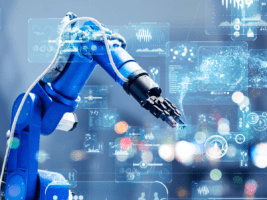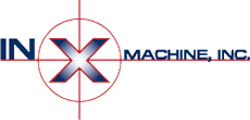The evolution of manufacturing processes has dramatically transformed industries worldwide. Central to this transformation is Computer Numerical Control (CNC) precision machining, a technological advancement that has carved its niche in modern manufacturing landscapes, becoming an integral component of Industry 4.0.
CNC precision machining refers to the process in which pre-programmed computer software dictates the movement of factory tools and machinery. This technology facilitates intricate and precise manufacturing tasks with minimal error. In the context of Industry 4.0 — often referred to as the Fourth Industrial Revolution, which integrates automation, data exchange, and manufacturing systems — CNC precision machining plays an indispensable role.
Understanding Industry 4.0
Before delving further into the role of CNC precision machining in Industry 4.0, it’s essential to understand the fundamentals of this transformative industrial revolution. Originating from a German strategic initiative, Industry 4.0, often referred to as the Fourth Industrial Revolution, represents the ongoing automation of traditional manufacturing and industrial practices, using modern smart technologies. It brings together physical production and operations with smart digital technology, machine learning, and big data to create a holistic and connected ecosystem for companies that focus on manufacturing and supply chain management.
Industry 4.0 signifies the trend towards automation, interconnectivity, machine-to-machine communication, and real-time data, fostering improved decision-making, productivity, and operational efficiencies. As we navigate this digital era, CNC precision machining emerges as an essential tool, integrating seamlessly with these advanced systems and processes to optimize production outcomes.
Facilitating Precision and Accuracy
Industry 4.0 thrives on precision, and CNC machining is at the forefront in this domain. With CNC precision machining, industries can achieve tolerances as close as 0.001 inches, ensuring high-quality, consistent, and exact output every time. This level of precision is particularly crucial in industries like aerospace, automotive, and healthcare, where even the slightest inaccuracy can lead to severe consequences.
Enabling Automated Manufacturing
As Industry 4.0 blurs the lines between physical and digital technologies, automation emerges as a key feature. CNC precision machining brings automation to the shop floor, enabling machines to operate around the clock with minimal human intervention. This consistent, 24/7 productivity contributes to increased output and reduced lead times, driving business growth and profitability.
Enhancing Flexibility and Adaptability
In the era of Industry 4.0, manufacturers are increasingly expected to offer personalized products while maintaining efficiency. The flexibility of CNC precision machining caters to this need, allowing manufacturers to adapt to design changes swiftly and efficiently. A simple alteration in the software can shift the production line from one product to another, fostering a more responsive and customer-centric manufacturing approach.
Supporting Smart Manufacturing
Smart manufacturing, a cornerstone of Industry 4.0, involves the use of data and machine learning algorithms to optimize manufacturing processes. CNC machines, integrated with sensors and connected to the Internet of Things (IoT), can collect real-time data about their operations. This data can be analyzed to improve efficiency, predict maintenance needs, and minimize downtime, propelling industries towards more intelligent and proactive manufacturing processes.
Promoting Sustainable Practices
Sustainability is a significant concern for modern industries. CNC precision machining aids in promoting sustainable practices by optimizing resource utilization and minimizing waste. Precise machining reduces the amount of scrap material, while automated operations enhance energy efficiency. This commitment to sustainability aligns with the environmental consciousness inherent in the Industry 4.0 philosophy.
Despite the apparent benefits, adopting CNC precision machining as part of the transition to Industry 4.0 also presents challenges. There are initial investment costs, the need for skilled operators and technicians, and potential cybersecurity risks due to increased connectivity. However, with strategic planning, these challenges can be managed, and the benefits of this technology fully realized.
In conclusion, CNC precision machining is undeniably a significant force in Industry 4.0. By enhancing precision, automation, flexibility, and sustainability, it empowers industries to meet the demands of the modern manufacturing era. As we continue to explore the potential of this Fourth Industrial Revolution, the integration of CNC precision machining in our manufacturing processes will continue to play a critical role in shaping industry trends.
 IN-X Machine, Inc.
IN-X Machine, Inc.